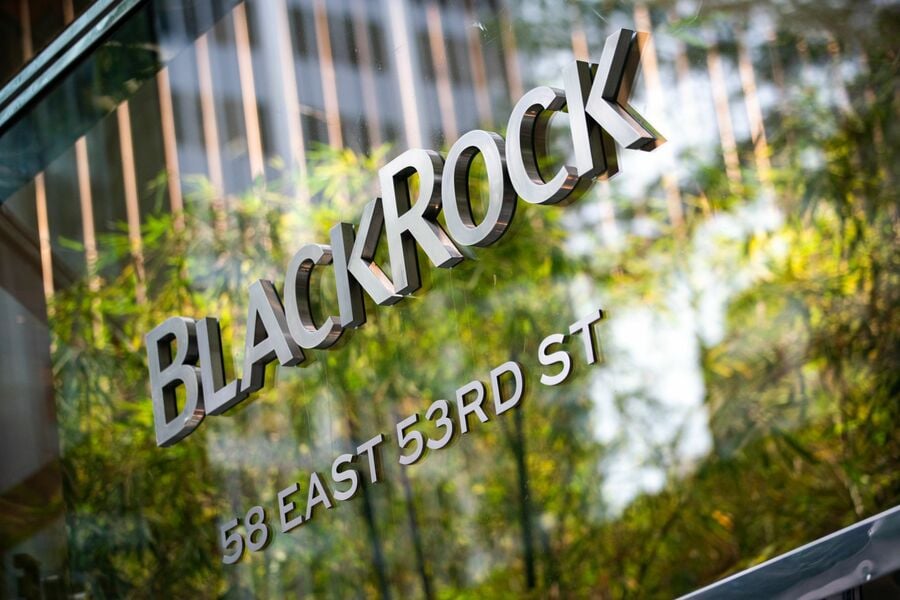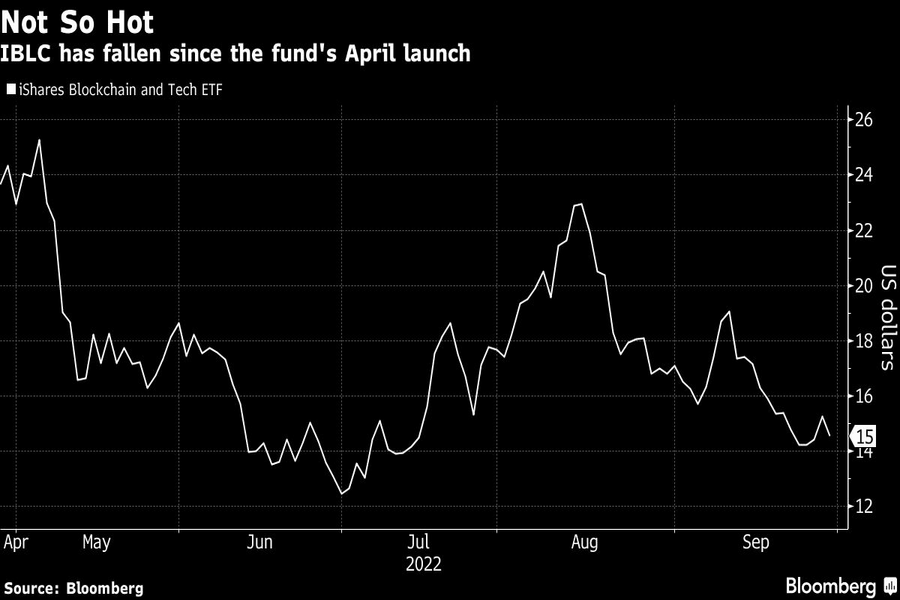

The world’s largest exchange-traded fund issuer is taking another step into cryptocurrencies with the filing of a new metaverse product, just months after launching a digital-assets fund that has so far failed to interest investors.
BlackRock Inc. is aiming to track companies that have exposure to the metaverse via the iShares Future Metaverse Tech and Communications ETF, according to a Thursday filing. The fund, for which fees and a ticker weren’t yet listed, might include firms that have products or services tied to virtual platforms, social media, gaming, digital assets, augmented reality and more.
The parent company is making inroads into digital assets, launching in April its blockchain and tech fund (IBLC), which has inflows totaling about $6 million. BlackRock recently partnered with crypto exchange Coinbase Global Inc. to make it easier for institutional investors to manage and trade Bitcoin, making waves in the crypto market.

Yet interest in the digital-assets ecosystem has plunged this year as prices for just about every crypto token have tanked. Bitcoin, the largest by market value, has plummeted about 60% in 2022 and Ether has declined as well. Google searches for cryptocurrencies have also diminished amid the so-called crypto winter.
“You can tell from other metaverse, blockchain funds that interest has waned,” said Todd Sohn, ETF strategist at Strategas Securities. “I get the long-term idea, but now there’s a ton of competition in the space too.”
BlackRock’s metaverse ETF wouldn’t be the first. A handful of funds are already trading, including the Roundhill Ball Metaverse ETF, and there are also products from Subversive and Fidelity.

Integrated Partners is adding a mother-son tandem to its network in Missouri as Kestra onboards a father-son advisor duo from UBS.

Futures indicate stocks will build on Tuesday's rally.

Cost of living still tops concerns about negative impacts on personal finances

Financial advisors remain vital allies even as DIY investing grows

A trade deal would mean significant cut in tariffs but 'it wont be zero'.
RIAs face rising regulatory pressure in 2025. Forward-looking firms are responding with embedded technology, not more paperwork.
As inheritances are set to reshape client portfolios and next-gen heirs demand digital-first experiences, firms are retooling their wealth tech stacks and succession models in real time.
